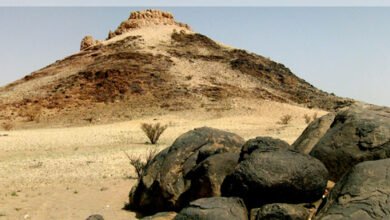Water and sanitation: Côte d’Ivoire to invest over US$5 billion by 2030

Ivorian Prime Minister Patrick Achi made the announcement at the 21st African Water Association (AfWA) International Congress held from February 20 to 24 in Abidjan.
By Bernard Bangda
By 2030, the Ivorian government will invest more than CFAF 3,000 billion (US$5 billion) to meet the water needs of Ivorians as part of the implementation of the « Water for All » plan. The announcement was made by Prime Minister Patrick Achi in Abidjan on Monday, February 20. It was made at the official opening of the 21st African Water Association (AfWA) International Congress, on the theme “Acting for sustainable management of resources and access to water and sanitation for all.”
The government’s efforts since 2011 have had an impact on the population’s access to drinking water. According to the Ivorian Ministry of Hydraulics, the rate has risen from 69% in 2016 to 80% by the end of 2018 and 90% by 2021. CFAF 109.098 billion of the CFAF 221.881 billion granted to the Ministry of Hydraulics were used to build human hydraulic facilities in 2022. They were also used to install solar energy to increase the density of village supply systems and to improve sanitation and wastewater treatment in Abidjan. It has also been used to extend wastewater collection networks in the interior of the country, particularly in Bouaké, San Pedro, Gagnoa and Korhogo.
« Africa can win the water battle »
Speaking to a group of water stakeholders who gathered in Abidjan from February 20 to 24 to discuss continental issues in the sector, the Ivorian Prime Minister said that « Africa must step up the fight for drinking water and sanitation over the next two decades. The sustainability of its development, its food security and its sovereignty are at stake, in a context where, in 2050, with more than 2 billion inhabitants, access to drinking water will be made more difficult, partly due to the consequences of global warming.”
« We will have to win the battle for access to drinking water by multiplying our efforts. The context and the future force us to succeed, because we have the means to do so, with a subsoil crossed by three of the 15 largest rivers in the world, including the second largest, the Nile, » stressed the Ivorian Prime Minister. A hope for the 420 million Africans who still lack basic drinking water services and the 780 million who have no access to sanitation.
Before the Ivorian prime minister, the African Ministers’ Council on Water (AMCOW), the pan-African intergovernmental organization established in 2002 in Abuja, Nigeria, had already spoken out on the issue. In its funding guide for members, its chairperson, Namibia’s Water Minister Carl Hermann Gustav Schlettwein, said the African Water Vision (AWV) for the period 2015-2025 requires an investment of $64 billion per year, compared to the current $10.5 billion, a shortfall of more than 80%. He committed African leaders to working towards universal access to water and sanitation by 2030.
And for good reason, said Carl Hermann Gustav Schlettwein: « In Africa, investments in water and sanitation not only improve livelihoods and well-being, but also generate an economic return of about $28.4 billion a year, or nearly 5% of the continent’s gross domestic product (GDP). And according to the 2004 report of the Stockholm International Water Institute (SIWI), a non-profit water and sanitation governance institute, « poor countries with improved water and sanitation services experienced average annual GDP growth of 3.7%, compared with average annual per capita growth of 0.1% for those lacking them.”






